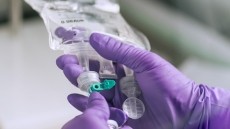‘Insatiable’ demand drives up expectations for Catalent's gene therapy unit

Catalent made a big move into gene therapies earlier this year when it struck a $1.2bn (€1.1bn) deal to buy Paragon, a specialist development and manufacturing service provider. The deal came at a time when Paragon wanted to increase its capacity quickly to meet fast-rising demand.
Paragon is currently running two suites but is set to add more. Two more suites are due to be up and running by the end of this year. A further six more will be built out by the end of 2020.
The rapid growth reflects soaring demand for gene therapy capacity. As it stands, the extent to which demand is outstripping supply is leading companies to pay reservation fees to access capacity.
David Windley, an analyst at Jefferies who covers Catalent, had expected Paragon’s expansion to ease capacity constraints. However, after talking to Catalent CEO John Chiminski, Windley now thinks the current market dynamics will continue to play out even after the capacity is built out.
Chiminski said, “We’re able to garner suite fees to reserve either a part of or all of the suite, even in advance of those suites being completely built out.”
The comment led Windley to reassess his projections for the revenue capacity of the gene therapy operation.
Windley said, “We calculated annualized revenue per suite of $30-40M, but had discounted that number for the six 2020 suites, assuming that reservation fees would dwindle as more capacity comes online. CEO Chiminski talked about ‘insatiable demand’ ... and reservation fees should remain a part of the business model.”
Factoring reservation fees for the new suites into the forecast led Windely to raise his expectations for the revenue capacity Paragon will have by the end of 2020. In June, Windley set the capacity target at $430m. Now, the analyst thinks the actual figure may be closer to $500m.
Catalent is now in the middle of integrating Paragon into its operation. Chiminski said integration of Paragon is “proceeding extremely well” and Catalant has retained 100% of the team it acquired, putting it on track to continue growing to meet demand.
The willingness of companies to pay to reserve capacity before it is built reflects the extent to which demand is outstripping supply. Growing to 10 suites by the end of 2020 will go some way to easing the pressure, but Chiminski thinks more capacity will be needed.
Chiminski said, “We’re not done after the 10 suites.”
























